Day 1, 12 November
Opening
Javier Galbally
Senior Research Officer
Dr. Javier Galbally has a M.Sc. degree in Electrical Engineering and a Ph.D. degree in Electrical Engineering and Computer Science. He was Assistant Professor at the Universidad Autonoma de Madrid, Spain until 2012. He joined the EC – Joint Research Centre in 2013, working as Scientific Officer. He works as Senior Research Officer in eu-LISA since 2022. His research background is mainly focused on the security and performance evaluation of biometric systems, development of pattern recognition and machine learning applications, and the use of data science on large scale IT systems. He has authored more than 100 scientific publications in the field of data science that have produced over 6,000 citations. He is the chair of the EAB-RPC conference and the recipient of a number of awards and distinctions in different scientific international peer reviewed conferences.

The European Union Agency for the Operational Management of Large-Scale IT Systems in the Area of Freedom, Security and Justice (eu-LISA) was established to provide a long-term solution for the operational management of large-scale IT systems.
The Agency currently manages Eurodac, the Schengen Information System (SIS) and the Visa Information System (VIS). Further to these, eu-LISA is developing the Entry/Exit System (EES) and the European Travel Information Authorisation System (ETIAS). These systems and the pre-existing ones are being built/adapted to ensure Interoperability – improved access to information stored in EU information systems and identity management at an EU level. In addition, the Agency’s portfolio has been enlarged within the justice domain: with the development of the European Criminal Records Information System – Third-Country Nationals (ECRIS-TCN), the management of e-CODEX and the development of the Collaboration Platform for Joint Investigation Teams (JITs).
Marili Männik
Executive Director Ad Interim
Marili Männik became eu-LISA’s Deputy Executive Director on 16 August 2024. She has also been appointed interim Executive Director by the Agency’s Management Board, a function she will hold until a new Executive Director is selected. Ms Männik is currently completing an Executive MBA at the University of Oxford. She has a Bachelor’s degree in Business Information Technology from Tallinn University of Technology (TalTech), a Master’s degree in International Finance from the Estonian Business School (EBS), and a dual Master’s degree in European Management from EM Strasbourg Business School.
Having spent multiple years working in Brussels and Luxembourg, and having held senior roles as Director at PwC and Senior Advisor at EY, Ms Männik brings a wealth of experience from the consulting and audit industries. Her most recent tasks and duties were in the fields of public sector management consulting and digital transformation, as well as internal firm’s management activities.

The European Union Agency for the Operational Management of Large-Scale IT Systems in the Area of Freedom, Security and Justice (eu-LISA) was established to provide a long-term solution for the operational management of large-scale IT systems.
The Agency currently manages Eurodac, the Schengen Information System (SIS) and the Visa Information System (VIS). Further to these, eu-LISA is developing the Entry/Exit System (EES) and the European Travel Information Authorisation System (ETIAS). These systems and the pre-existing ones are being built/adapted to ensure Interoperability – improved access to information stored in EU information systems and identity management at an EU level. In addition, the Agency’s portfolio has been enlarged within the justice domain: with the development of the European Criminal Records Information System – Third-Country Nationals (ECRIS-TCN), the management of e-CODEX and the development of the Collaboration Platform for Joint Investigation Teams (JITs).
Zsolt Szolnoki
Senior High Counsellor
Zsolt currently is working in Brussels, at the Permanent Representation of Hungary to the EU and chairing the Working Party for Information Exchange during the Hungarian Presidency. He also co-charing the Steering Group for the EU Innovation Hub. He has been the member of the Management Board of eu-LISA from the beginning and he chaired the Board between 2018 and 2024. As the Chair of the Board, he actively participated in the setting up of the new governing structure of the Agency. In the Ministry of Interior of Hungary, he is responsible for managing the whole Interoperability Programme including all related projects (EES, ETIAS, SIS, VIS, ECRIS TCN, interoperability) in the area of the Home Affairs.
Previously he worked for the Hungarian National Election Office as the Deputy Head of the Election Department and later as Head of IT department in the Ministry of Interior. From 2006 till November 2010, he worked for the European Commission as a Seconded National Expert on the area of Home Affairs. In 2011 he was the Chairman of a working group in the Hungarian EU Presidency team.
Zsolt holds a BA in Public Administration and completed a post graduate course in Business Management at the Budapest University of Public Service.
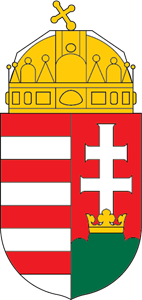
The Ministry of Interior prioritizes law and order, public safety, and the protection of life and property. Key responsibilities include maintaining law and order, preventing crime, and supporting victims. The Ministry creates a legislative framework for these tasks and oversees law enforcement bodies, including transport, border policing, corrections, and national security services. It also coordinates disaster management and prevention efforts. Additionally, the Ministry handles immigration and citizenship tasks, such as immigration security, onward migration, and social integration of foreigners and refugees. The Ministry collaborates with local authorities to oversee settlement development, planning, construction affairs, and public space supervision. Its guiding principle is to ensure the well-being and safety of citizens, while adapting to emerging challenges like extreme weather conditions and organized crime.
Yordanka Ivanova
Head of Sector ‘Legal oversight of AI Act implementation’
Yordanka Ivanova is a Head of Sector ‘Legal oversight of AI Act implementation’ in the European AI Office in the unit responsible for Artificial Intelligence Regulation and compliance. Yordanka has been part of the legal team who originally drafted the Commission proposal for an AI regulation in 2021 and has followed its entire process of negotiations with the EU co-legislators for its successful adoption in June 2024. Currently, as a head of sector she is responsible for preparing and overseeing a number of priorities for the implementation of the AI Act, including in relation to the high-risk AI systems and the prohibitions.
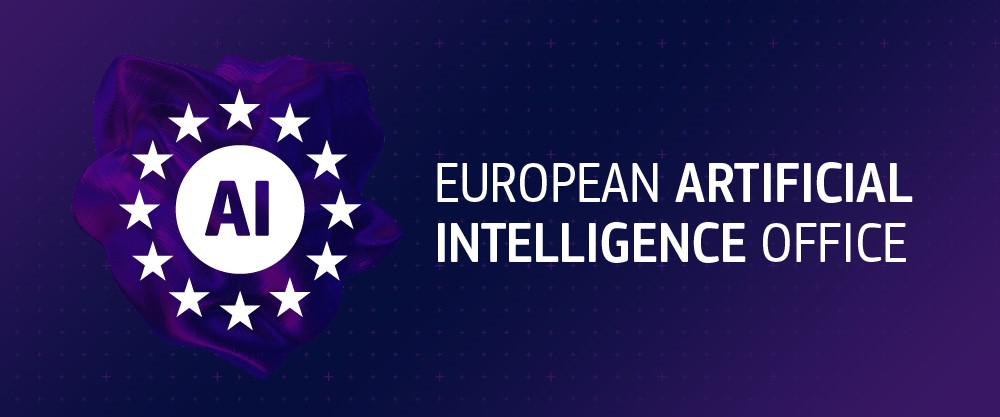
The AI Office is established within the European Commission as the centre of AI expertise and a single European AI governance system. It plays a key role in implementing the AI Act by preparing guidance and other documents and enforces the rules for general-purpose AI models. The AI Office also promotes an innovative ecosystem of trustworthy AI, to reap the societal and economic benefits. It ensures a strategic, coherent and effective European approach on AI at the international level, becoming a global reference point. For well-informed decision-making, the AI Office collaborates with Member States and the wider expert community through dedicated fora and expert groups.
Annette Cassar
Policy Officer Innovation and Security Research unit
Ms. Annette Cassar is a policy officer working for the Commission’s unit dealing with Security Research and Innovation at the Directorate for Home Affairs and Migration, with a focus on artificial intelligence in the Home Affairs domain. Prior to joining the unit in August 2023 she formed part of the team at DG HOME working on the fight against child sexual abuse and exploitation. In her previous role she managed the Maltese Ministry for Interior’s EU Affairs portfolio dealing with serious and organised crime and law enforcement. Annette holds a Bachelor’s degree in Science, specialising in therapy and a Masters in European Politics and Diplomacy.
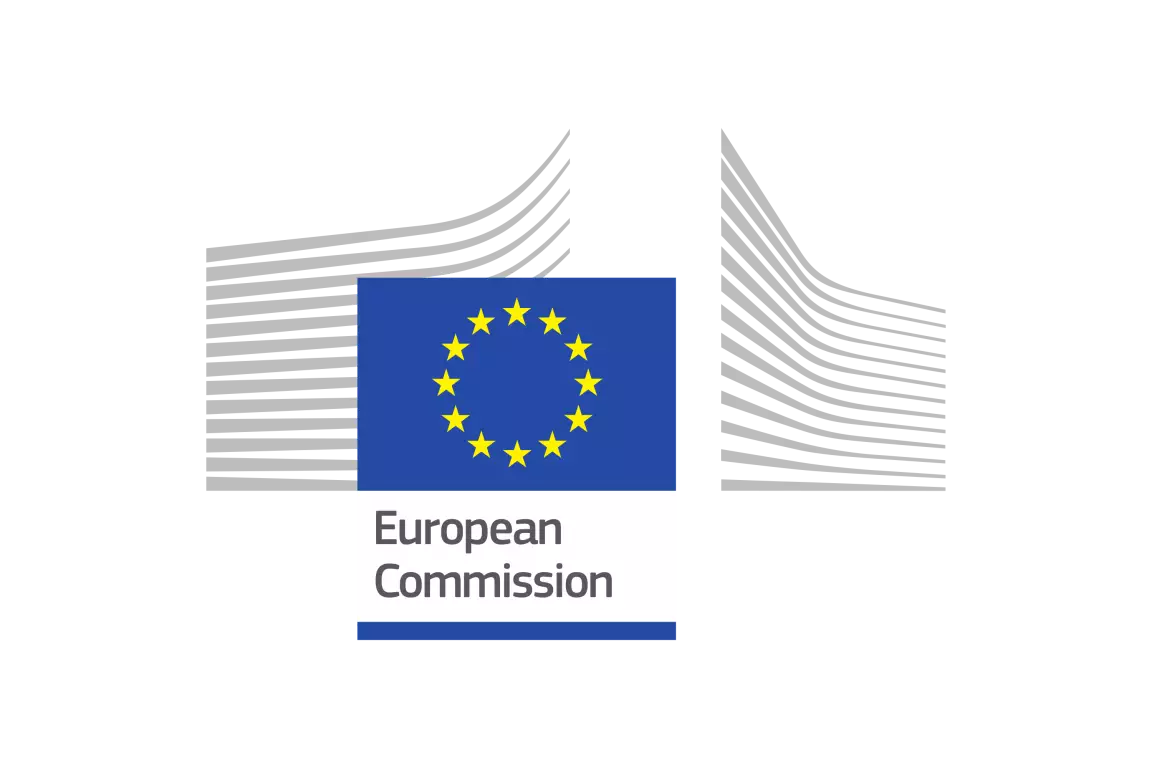
The European Commission’s DG HOME handles migration and home affairs across four key areas. Under Migration and Asylum, the 2023 New Pact aims for a fairer EU migration process. Internal Security focuses on EU safety, combating terrorism and organized crime, and includes stricter rules on trafficking and child protection. In Schengen, Borders, and Visa, DG HOME protects EU external borders and ensures the free movement within the Schengen Area. Through International Affairs, DG HOME promotes global cooperation, reinforcing the EU’s role in global security and supporting related EU-funded initiatives.
Aleksandra Oczko-Dolny
Policy Officer Innovation and Security Research unit
Migration and Home Affairs (DG HOME) of the European Commission.
Her work is focused on matters related to Artificial Intelligence and to the availability of data for research. Aleksandra specialises in ethical, societal and legal aspects of AI solutions for security purposes and contributes to the priorities and the evaluation of EU Framework Programme(s) for Research and Innovation. She holds a degree in Political Science from the University of Wrocław, Poland. Before joining the Commission, Aleksandra worked for civil society organisations, multinational consultancies, and European and German Parliaments.

The European Commission’s DG HOME handles migration and home affairs across four key areas. Under Migration and Asylum, the 2023 New Pact aims for a fairer EU migration process. Internal Security focuses on EU safety, combating terrorism and organized crime, and includes stricter rules on trafficking and child protection. In Schengen, Borders, and Visa, DG HOME protects EU external borders and ensures the free movement within the Schengen Area. Through International Affairs, DG HOME promotes global cooperation, reinforcing the EU’s role in global security and supporting related EU-funded initiatives.
Session 2-A
Colin van Noordt
Researcher Algorithms & Cloud
Colin van Noordt is a Researcher in Algorithms and Cloud at the Netherlands Court of Audit. He completed his PhD on the use of AI in public administration at the Tallinn University of Technology in Estonia. During his PhD, acted as an External Expert for the AI Watch team of the European Commission, contributing to research activities on the use of AI within public services. He is author of various academic and policy publications on the opportunities and challenges of using AI in government.
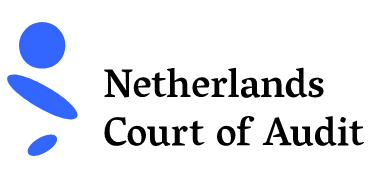
The Netherlands Court of Audit is the Supreme Audit Institution of the Netherlands and an independent High Council of State, separate from the government and parliament. The Netherlands Court of Audit audits the regularity, efficiency and effectiveness of the revenue and expenditure of the Dutch central government and the institutions associated with it. The institution is one of the first Supreme Audit Institutions auditing the use of algorithms and AI by government.
Spyros Sarigiannidis
Head of Unit DIGIT.B.1 – Data, Artificial Intelligence and Web
Spyros has more than 20 years of professional experience in the domain of public administrations. He joined the Directorate General for Digital Services (DIGIT) of the European Commission in 2007 and since then he has had several distinct roles in the areas of financial rights information systems, IT security policy, and cybersecurity operations.< br /> In 2023 Spyros has been appointed head of ‘DIGIT B.1 – Data, Artificial Intelligence and Web’ unit, providing digital enablers for the transformation of the European Commission and of its ICT domain, and fostering the innovation at corporate level through the management of the digital innovation policy framework. His key priorities include the implementation of the AI@EC strategy, the delivery of digital services in the areas of data and artificial intelligence, and the overall evolution of the service offering of DIGIT B.1 to contribute to the creation of a single digital government mindset, to the rethinking of policymaking, and to the optimisation of business and administrative processes in European Commission.
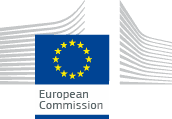
The Directorate-General for Digital Services (DIGIT) aims to digitally transform European Commission, making it more efficient, agile, and effective. To achieve this, DIGIT fosters a “digital-first” mindset among its staff, encouraging innovation and collaboration. ‘DIGIT B.1 – Data, Artificial Intelligence and Web’ unit provides digital enablers for the digital transformation of the organisation and of its ICT domain in the areas of data, artificial intelligence, and web presence.
Session 2-B
Jochen Friedrich
Technical Relations Executive
Jochen Friedrich leads IBM’s team for Standardisation and Technical Regulation in Europe and is part of the corporate IBM standards and open source strategy organisation. Jochen holds a number of positions in European standardisation. He is President of Ecma International, member of the ETSI Board and chairs the strategic advisory committee FOCUS.digital in the German national standardisation Body DIN and the German Expert Panel on Industrie 4.0. Jochen also has leading roles in industry associations and is a member of several government advisory committees in the area of standardisation and technical regulation. Jochen is a Fellow of the OpenForum Europe Academy.
IBM (International Business Machines Corporation) is one of the world’s largest IT companies with a strong basis in Europe including Research and Development sites in several European countries. For more than a century, IBM has been a global technology innovator. IBM is a leading provider of hybrid cloud and Artificial Intelligence solutions and consulting services. IBM helps clients capitalize on insights from their data, streamline business processes, reduce costs and gain the competitive edge in their industries. IBM’s breakthrough innovations in artificial intelligence, security, quantum computing, industry-specific cloud solutions and consulting deliver open and flexible options to clients. www.ibm.com
Maria Mora Rodriguez
Head of Fraud and Risk Solutions at the Global CoE of Data Intelligence
Maria Mora heads ESG and Risk and Fraud Solutions at Fujitsu’s Global Centre of Excellence, focusing on Digital Transformation, data standardization, and AI integration for financial and sustainability reporting. With extensive expertise in regulation, finance, and sustainability, she advises global regulatory authorities and serves on XBRL International’s Board. Maria also contributes to AI standards at CEN CENELEC JTC 21 and shapes sustainability standards with GRI. Her background includes roles at CDP, IFRS Foundation, and EFRAG TEG. Maria holds a PhD in Engineering from the University of Bristol, a Bachelor’s in Computer Engineering, and has published widely on ESG, AI, and Blockchain.

Fujitsu is one of the leading global ICT companies, striving to make the world more sustainable by building trust in society through innovation. As the digital transformation partner of choice for customers in over 100 countries, our 124,000 employees work to resolve some of the greatest challenges facing humanity. Our range of services and solutions draw on key technologies: Computing, Cloud, Networks, Artificial Intelligence, Data & Security, and Converging Technologies, which we bring together to deliver sustainability transformation. The Global Centre of Excellence (CoE) on Data Analytics based in Spain provides highly specialized services in the broad Analytics domain, including anti-fraud expertise and solutions for compliance with the regulatory framework for AI. Our Fujitsu Sentinel AI advanced platform is developed by the CoE team, who also provide associated consulting services on these topics.
Lotte Van Den Berg
Senior Manager Trustworthy AI
Lotte is Senior Manager Trustworthy AI at Deloitte Belgium. She is an expert in AI, and has ample experience driving data-driven insight and AI solutions from conceptualization to adoption. Lotte’s mission is to help clients adopt an ethical and responsible approach to AI, and improve stakeholders’ trust and confidence to truly leverage the power of AI. As expert member of the Standards Committee Member on Artificial Intelligence Lotte helps to shape Belgium’s contribution to the technical standards of the AI Act.

Deloitte is the number 1 professional services network globally, offering audit, accounting, legal and tax advice, consulting, financial, and risk advisory services across various industries. Our services are based on a global strategy covering more than 150 countries. To this end, the expertise of over 460 000 professionals is available in all continents. Deloitte Belgium’s Trustworthy AI team helps clients scaling responsible AI. Besides regulatory compliance, we offer tailored steps in AI governance to boost clients’ innovation and accelerate the scaling of their business.
Hanne Verdickt
Senior Consultant Trustworthy AI and AI Governance
Hanne works in the AI & Data department of Deloitte Belgium where she has built up expertise in the topics of trustworthy AI and AI & data governance. She has successfully completed AI & data projects across several industries and is currently working for the Public Sector as an AI governance expert and AI project manager. Hanne eagerly advises companies on compliance with the AI act and most of all on having in place good practices on the implementation and usage of AI.

Deloitte is the number 1 professional services network globally, offering audit, accounting, legal and tax advice, consulting, financial, and risk advisory services across various industries. Our services are based on a global strategy covering more than 150 countries. To this end, the expertise of over 460 000 professionals is available in all continents. Deloitte Belgium’s Trustworthy AI team helps clients scaling responsible AI. Besides regulatory compliance, we offer tailored steps in AI governance to boost clients’ innovation and accelerate the scaling of their business.
Pierre-Adrien Hanania
EU Institutions Security & Justice Client Partner
Pierre-Adrien Hanania works at Capgemini where he supports the digitization of the Public Sector as Client for EU Security & Justice institutions. He previously led the Data & AI in Public Sector offer of the Group, focusing on how to unlock the intelligent use of data to help organizations deliver augmented public services to the citizens along trusted and ethical technology use. Based in Germany, Pierre-Adrien previously worked for various European think tanks and graduated in European Affairs at Sciences Po Paris.

Capgemini is a global business and technology transformation partner, helping organizations to accelerate their dual transition to a digital and sustainable world, while creating tangible impact for enterprises and society. It is a responsible and diverse group of 340,000 team members in more than 50 countries. With its strong over 55-year heritage, Capgemini is trusted by its clients to unlock the value of technology to address the entire breadth of their business needs. It delivers end-to-end services and solutions leveraging strengths from strategy and design to engineering, all fueled by its market leading capabilities in AI, cloud and data, combined with its deep industry expertise and partner ecosystem.
